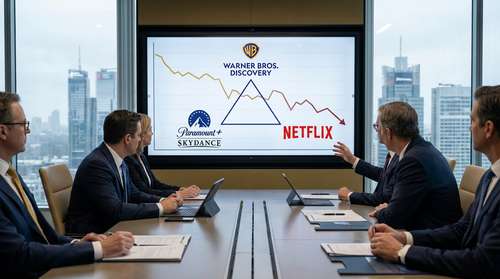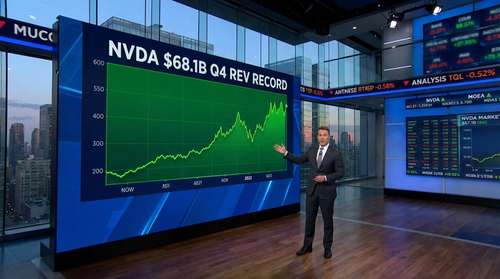Before spending their money on Black Friday, shoppers have been advised to ensure they get a "genuine bargain." Current research indicates an additional £500 million will be spent.
This year, Cyber Monday comes after Black Friday, a US import that has gained popularity in the UK and almost everywhere else globally. Black Fridays are observed on November 25.
However, experts have warned consumers not to be duped by alluring offers, many of which have already begun, especially in light of the cost of living crisis, severely straining household budgets.
This year prices are rising at their fastest rate in over 40 years, prompting Christmas shoppers to search for savings. But Which? warned that Black Friday was "rarely the cheapest time to shop."
It analyzed 214 Black Friday deals last year at seven major home and tech retailers - Amazon, AO, Argos, Currys, John Lewis, Richer Sounds, and Very. It looked at their prices every day in the six months before and after the sale, which was 26 November 2021.
Out of the deals analyzed, Which? found 183 or 86% were cheaper or the same as their Black Friday price in the six months before the sales event.
Some 209 deals, or 98%, were cheaper or the same at other times of the year. None were cheaper on Black Friday alone. It found that at the department store John Lewis, an £869 Bosch fridge was £20 cheaper after the Black Friday sale and remained so until the next year.
John Lewis's spokesperson said the offers in Which? 's research were part of its Never Knowingly Undersold price match pledge, which has now been retired. Which? Also, some retailers temporarily raised the prices of goods just before Black Friday, so they would seem discounted by the time the sales day arrived.
It was discovered that an online retailer called Very offered a £100 Black Friday discount on a Toshiba TV that cost $279. But in the month leading up to Black Friday, the TV was only offered at £379 for three days.
Dubious Discount
Which? (the code name for the watchdog) named Amazon and Very as "the worst retailers overall for dubious discounts." It found more than 70% of products included in its analysis were cheaper at other times of the year compared to their Black Friday price.

Amazon said it offered low prices all year round and several seasonal deals and events.
"Our Black Friday sale offers thousands of deals from every category across the site at a time of year when we know saving money is important to our customers," an Amazon spokesperson said; “We seek to offer our customers great value thanks to low prices all year round as well as a number of fantastic seasonal deals events.
“Our Black Friday sale offers thousands of deals from every category across the site at a time of year when we know saving money is important to our customers.”
Retail editor Reena Sewraz said finding a good deal on Black Friday was like looking for a needle in a haystack.
She added: "It's rarely the cheapest time to shop, “and you'll probably find the things you want are the same price or cheaper as we head towards Christmas, the New Year, “and beyond."
Argos said that their Black Friday deals were "no exception" to its "great prices" throughout the year, while online retailer AO told Which? that its Black Friday deals were "but one part of the many deals" they offered throughout the year.
Richer Sounds chief executive Julie Abraham said: “Black Friday is now an event that takes up most of November. For their research, Which? used just the single day of Black Friday as the basis for their price comparison. Our Black Friday Event prices are available for customers from early November, so it’s inevitable that some prices compared will have been the same in the days preceding Black Friday.
“Regarding pricing after Black Friday, we can only set prices for Black Friday with the information we have at that time. Afterward, manufacturers may have excess stock to shift, or other determining factors in the market mean that some prices stay low. “We’re always delighted to offer our customers an extended opportunity to save.”
Your finances can frequently suffer from impulsive spending, especially in the weeks leading up to the holiday season. In most cases, especially when making purchases online, it pays to take a step back and think things through to save money or safeguard yourself from cons.
Fraudsters leverage the power of any frenzies, such as a need for discounts or a shortage of a specific good. An astonishing £100m a month is lost to fraud. Experts urge people to take their time, watch out for bogus websites, and ensure sellers are genuine. The Take Five campaign has some basic advice.
Patience is also key when deciding whether you have the budget for what you might consider a good deal. Advisers say "money in" your account should be the first consideration rather than "money-off" the price. The consumer group Which? has a guide on shopping during Black Friday and beyond.
This year, more people are anticipated to set out to look for deals in stores all over the UK, according to Springboard.
Although overall foot traffic is anticipated to remain below pre-pandemic levels, there will be 16% more shoppers in UK shopping centers in 2022 than there were in 2021, the report said.
Springboard added that foot traffic on UK high streets would increase by 13.2% from the previous year.
According to a Lloyds Bank analysis, scams increase by a third around Black Friday, with the majority of fraud involving clothing purchases.
The bank reported that in 2021, the number of scams increased by 29% around Black Friday and Cyber Monday.
"Fraudsters post phony offers on social media. Even better, they can deliver them directly to your inbox. Always search for deals yourself," Lloyds Bank warned.




